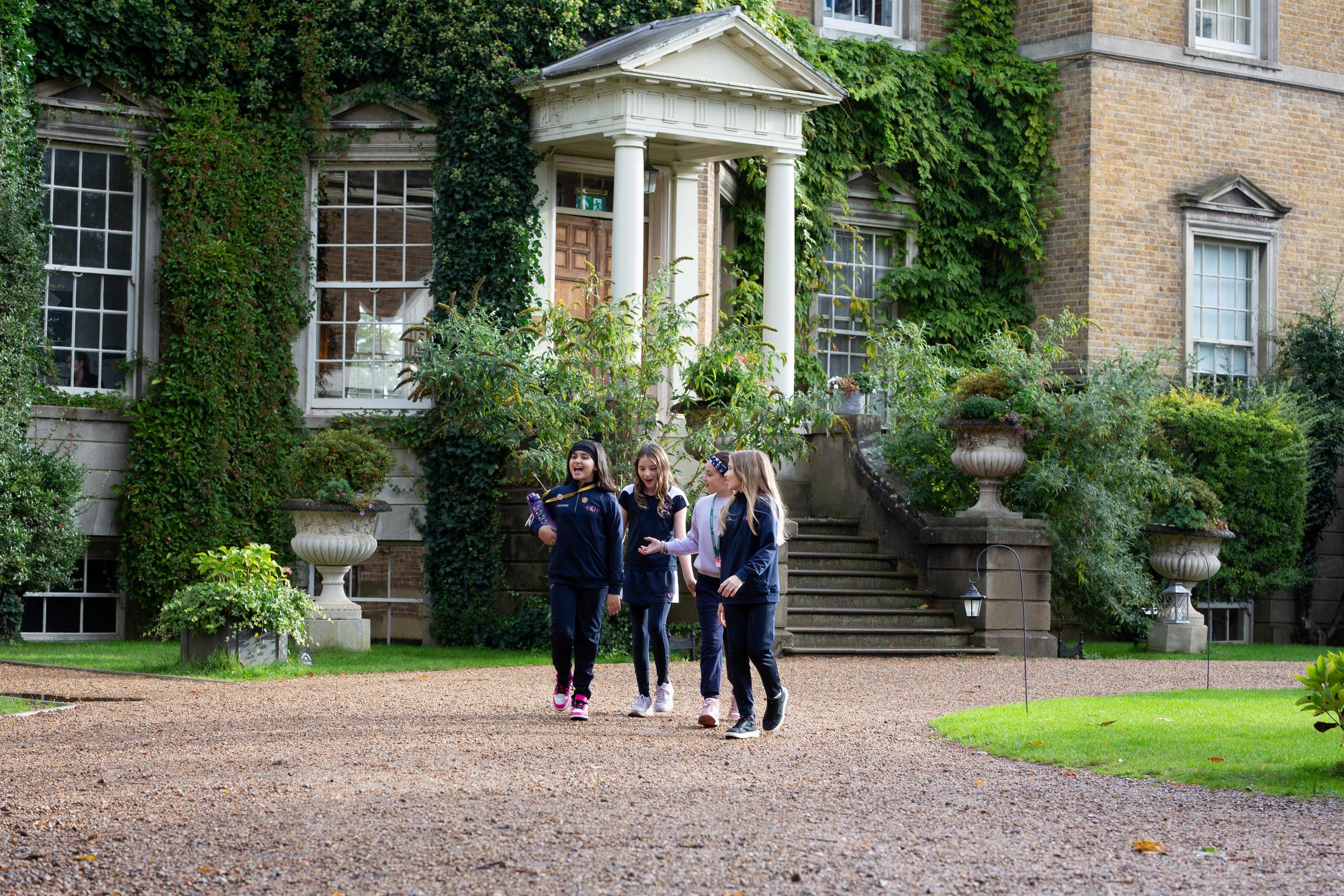
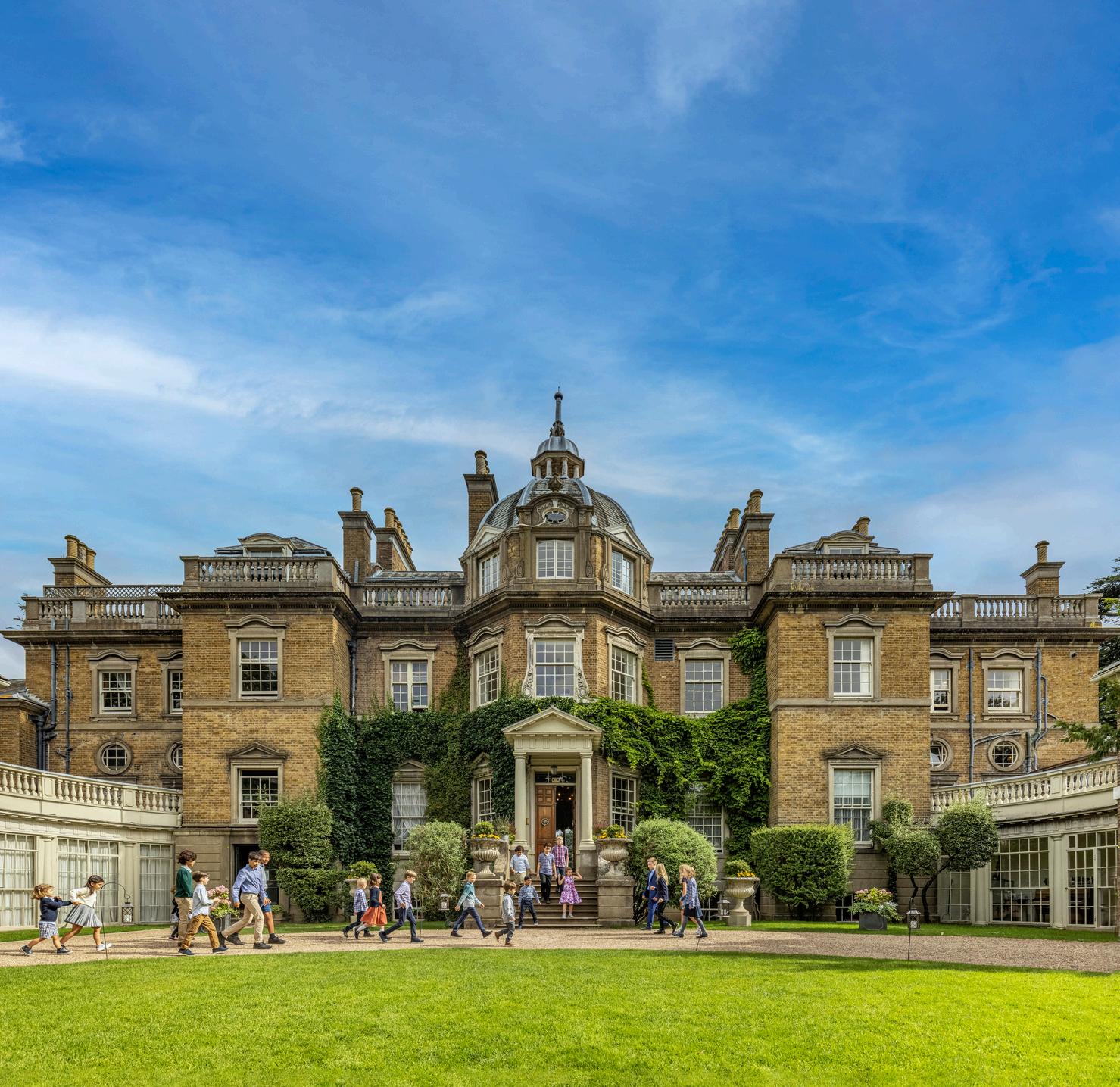
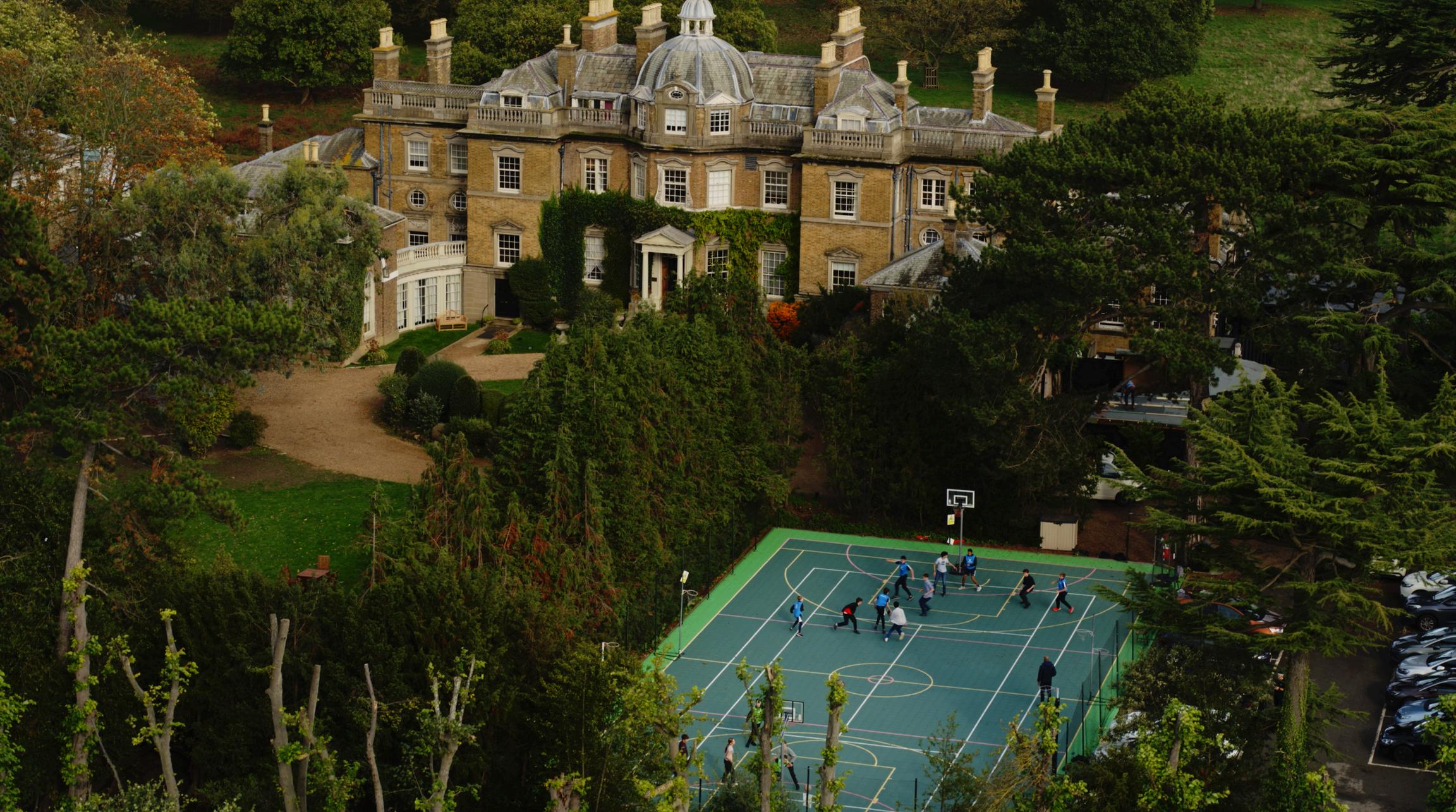










contacts
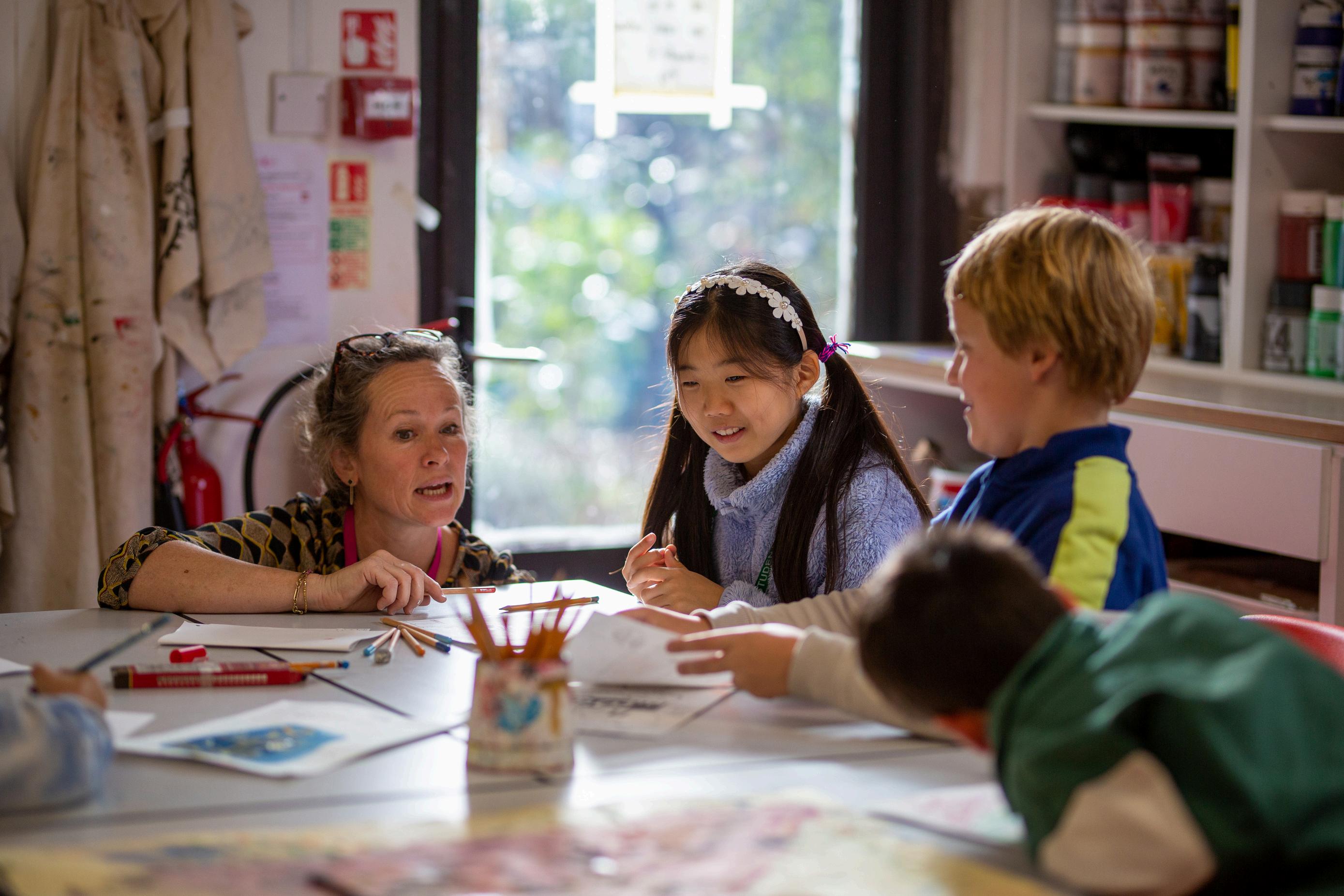

Students will be creating art in response to their learning about the Ancient Maya civilisation. We will make observations about the sophisticated scripts, the relief carvings and Zoo morphs. Students will be introduced to three-point perspective to create a detailed drawing of The Temple of Kukulkan at Chichen Itza and make studies of plants which made up the surrounding rainforest. The project will culminate in working with clay to create a pottery whistle inspired by those which have been discovered at ancient Maya sites.
Term
Autumn 1
Autumn 2
Spring 1
Spring 2
Summer
What are we studying?
Ancient Maya Civilisation: Clay. Pupils will learn about Maya whistles which have been discovered by archaeologists, they will make drawings of different types of whistles and design their own. Learning new techniques in the use of clay, pupils will make their own whistle.
Ancient Maya Civilisation: Chichen Itza, three-point perspective, learning skills in accuracy, students will draw the three-dimensional pyramid structure of Kukulkan. To create a rainforest setting for their drawing, pupils will make studies of jungle plants, considering the use of line, tone and shape.
World War II: Students will be making art in response to their learning about the Second World War this term. Studying the work of war artists Eric Ravilious, Stanley Spencer and Paul Nash, students will consider the role of a war artist and make comparisons between their styles of work.
World War II: Looking at the development of dazzle painting used to protect naval vessels from German attack. Students will make a wooden boat onto which they will paint a dazzle design which they have created in response to their studies.
Animation: Students will study the animated works of artists such as William Kentridge, Tim Burton and Walt Disney, looking at different techniques and materials which can be used to create animation. Pupils will experiment with media such as charcoal, collage, clay and drawing, culminating in the use of their preferred technique to create a short, animated story.


Foundation group: Sesame 1
Advanced group: Decibel 3
Throughout the course of the term, both Y6 groups will be working on talking about their summer holidays, talking about the first days at school and their timetable. They will ask their peers about what they like and dislike. They will also learn how to describe someone physically and to talk about their personality. Students will also learn to describe their experience of school and their homelife. As the terms progress the different groups will do some different in order to embed and consolidate French language skills in a way appropriate to their level. The details of the year for each group are below.
How it will be assessed:
Students will have regular vocabulary tests to guarantee appropriate knowledge and progress, and at the end of each half term they will have a written assessment that will cover reading, listening, grammar, translation and writing.
Foundation set: Sesame 1
Term
Autumn 1
Autumn 2
What are we studying?
Unit 0, 1 “Moi” (“Me”)
During the first half term, students will have an introduction to the French language, by learning:
Greeting other people in French and introducing their selves. (verb s’appeler and the concept of conjugation by changing the ending of the verbs to mention the person (je m’appelle, tu t’appeles, etc).
Learning the numbers from 1 to 15, to be able to say how old they are and to say how are they feeling.
Grammar: learning the two most important regular verbs of the curriculum être (to be) and avoir (to have), and their conjugation at least in the 1st, 2nd and 3rd person of singular (je, tu ill and elle)
2,
During this period, they will learn to talk about their school.
Vocabulary: school material, school subjects, the days of the week, numbers up to 31 and food.
Grammar: verbs aimer, adorer and détester – to like, to love, to hate-, and the gender of the words in French and the use of different articles such us the definite articles (un, une, des, le, las, l’, and les –a/an, and the) indefinite articles (du, de la, de l’, and des –some) and possessive articles (mon/ma, ton/ta, mes/tes - my, your)..

Foundation set: Sesame 1 continued

Advanced set: Decibel 3

The MODULE 1 focuses on developing key competencies in oral expression, reading comprehension, writing, and language study. Students are expected to recite texts with expression, understand and analyse mythological narratives, and produce written texts such as descriptive poems Emphasis is also placed on vocabulary development, correct spelling of invariable words, and mastery of grammatical rules including verb conjugation and sentence structure. The curriculum aims to strengthen the link between oral and written language, helping students to build a solid foundation in both comprehension and production of the French language.
How it will be assessed?
The programme includes end-of-unit assessments and follow-up assessments in spelling and conjugation to gauge and measure students' proficiency and progress, ensuring they develop strong reading and writing abilities, a deeper appreciation for literature, and improved expressive skills
The term will begin with an assessment called the évaluation diagnostique to identify specific areas for improvement
Students will be asked to write and present two book reviews per term
Term
Autumn
MODULE 1
Reading and Comprehension
What are we studying?
Objective: Build reading comprehension skills through the analysis of literary texts, particularly mythological stories
Writing (Production of Texts)
Objective: Learn to write descriptive and creative texts, such as poems Language Study (Grammar, Spelling, Vocabulary)
Lexicon - Create lexical fields Use a dictionary effectively Goal: Acquire vocabulary knowledge and usage strategies
Spelling - Spell invariable words correctly Apply spelling rules (e g , m before b/p) Recognize and use grammatical homophones Goal: Master the relationship between spoken and written forms
Verb Grammar - Identify the verb in a sentence Find infinitive forms and verb groups Conjugate verbs in present and future indicative Goal: Understand verb functions and conjugation patterns
Sentence Grammar - Recognize types of phrases Agree noun phrases correctly Identify the subject of the verb Goal: Analyse sentence structure and components


The Global Ecosystems topic will take the students to different parts of the globe to learn about the conditions and characteristics of the world’s biomes Key concepts and terminology used in ecology will be introduced so that students build upon their knowledge of ecosystems with a more scientific perspective. A range of data will be utilised, providing groundwork in skills which are integral to the subject. This will allow students to begin to think critically in the latter part of the term about threats posed by various factors. They will be encouraged to write descriptively and to explain their ideas.
Topics covered throughout the year:
Global Ecosystems, Conservation & Sustainability, Earthquakes & Volcanoes Skills
Be able to interpret and describe a wide range of graphical data
Be able to explain using chain of reasoning how fundamental processes occur in both the physical and human environment
Be able to put forward arguments and justify stance
Be able to interpret a wide range of maps


These lessons are designed to teach children about the Principles of Harmony in Nature and the importance of keeping this harmony in balance The Principles of Harmony are Interdependence, Natural cycles, Diversity, Adaptation, Health, Geometry, and Oneness The subject is explored by pupils through inquiries of learning, reading, and discussing stories, explorative walks in nature, and creative activities These questions are linked with their syllabus content each half-term and learning is interdisciplinary with Art, Maths, English, and Science subject knowledge development
Themes by term will be:
Autumn: My Environment
Spring: My Health and the Environment
Summer: My Place in the World
Term
Autumn 1
Autumn 2
What are we studying?
Inquiry question: What is the life cycle of materials around us? Students will learn about the life cycle of materials that will help them appreciate the journey of everyday objects from raw materials to disposal By understanding the life cycle of materials and their suitability for various applications, students can make informed decisions about the products they use and their impact on the environment
Inquiry question: What is Symbiosis? (The Art of Living Together) Students will learn that symbiotic relationships are interactions between two different organisms living in close physical proximity They will explore that these relationships can be mutual, parasitic, or commensal to the organisms involved By observing these symbiotic relationships in nature and engaging in practical activities like making ink from oak galls, students will develop a deeper understanding of the interconnectedness of living organisms and the practical applications of natural resources

Spring 1
Spring 2
Summer 1
Summer 2
Inquiry Question: How do our choices affect our health?
Students will learn about the circulatory system and how our bodies transport nutrients and water They will investigate the effects of diet and exercise and identify strategies to look after their health They will explore the healing power of words to support their mental well-being These lessons will empower them to make informed decisions that promote their physical and mental well-being
Inquiry Question: How can we use energy in a sustainable way?
Students will explore how can they use their body’s energy in a sustainable way and learn about the importance of allowing their body to regenerate They will learn about the energy of language, how do words/ tone make us feel By exploring the concept of renewable energy and engaging in practical activities, students will gain a comprehensive understanding of sustainable energy use, both in terms of personal health and environmental impact They will learn to appreciate the interconnectedness of their actions and the environment, fostering a mindset of sustainability and responsibility
Inquiry Question: How carbon is important to all life on Earth?
Students will learn about carbon as the basic building block of all living organisms on Earth They will explore its importance by examining fundamental cellular, biochemical and energy storage processes Students will be introduced to the carbon cycle and develop an understanding of how it regulates Earth's climate and sustains ecosystems, while innovative thinking about carbon storage and use offers solutions to address climate change and transition to a more sustainable future
Inquiry Question: How do I belong to my environment?
Students will explore how belonging to their environment involves developing a sense of connection, stewardship, and responsibility towards the natural world and the communities they are part of They will explore how evolution theory and the inheritance of genetic information explain the unity and diversity of life on Earth Through art, students will explore how local conditions cultivate a sense of belonging and influence the characteristics of a place


Throughout the year pupils will explore a range of topics that will allow them to develop the following:

Year 6 Curriculum Overview
Autumn Term 2025
we will cover the language and stories following the ISEB Latin KS2/3 syllabus from Nick Oulton’s Latin prep 1 with additional language material from Bob Bass’ Latin CE 1 Grammar Booklet The classes will have one lesson a week, with a focus on reading Latin and decoding the stories and mythology while building up a vocabulary knowledge to give them a foundation for English and other Romance languages they will go on to study There will also be lessons dedicated to exploring Roman culture through archaeological and source-based activities
Assessment:
There will be informal vocabulary quizzes as we reach a new chapter and to consolidate vocabulary at the end of a chapter
Term
Autumn 1
Autumn 2
Spring 1
Spring 2
What are we studying?
So you really want to learn Latin 1 Chapter 1 and 2 Language
Latin alphabet, punctuation and pronunciation word order and endings verbs: person endings present tense all conjugations nouns: declension, gender, case 1st and 2nd declensions
Latin Prep 1 Chapter 3-4
Prepositions with the accusative the infinitive expressions of time vocabulary
So you really want to learn Latin Chapter ch 4
Neuter nouns
Prepositions with ablative
Adjectives
Agreement of adjectives
Imperfect tense
Imperfect of ‘ sum ’
Chapter 5
Perfect tense
-er adjectives
Perfect tense of sum
Supines

Term
Summer 1
Summer 2
Term
Autumn 1
Autumn 2
Latin Prep 1 Ch 6:
What are we studying?
2nd conjugation perfects
Personal pronouns
Direct questions (who? Why? What? Where?)
3rd conjugation perfect tense
Latin Prep Chapter 7:
Ordinal numbers
4th conjugation
Irregular perfects
Culture and mythology
The Labours of Hercules
The Trojan War
The Travels of Odysseus
The Vindolanda tablets and roman writing
Odysseus returns home
The Story of Niobe
Roman Saturnalia
Spring 1
Romulus and Remus
Spring 2
Romulus and Remus and foundation of Rome
Summer 1
Romulus becomes king and early Rome
Summer 2
Atalanta and the Golden Apple
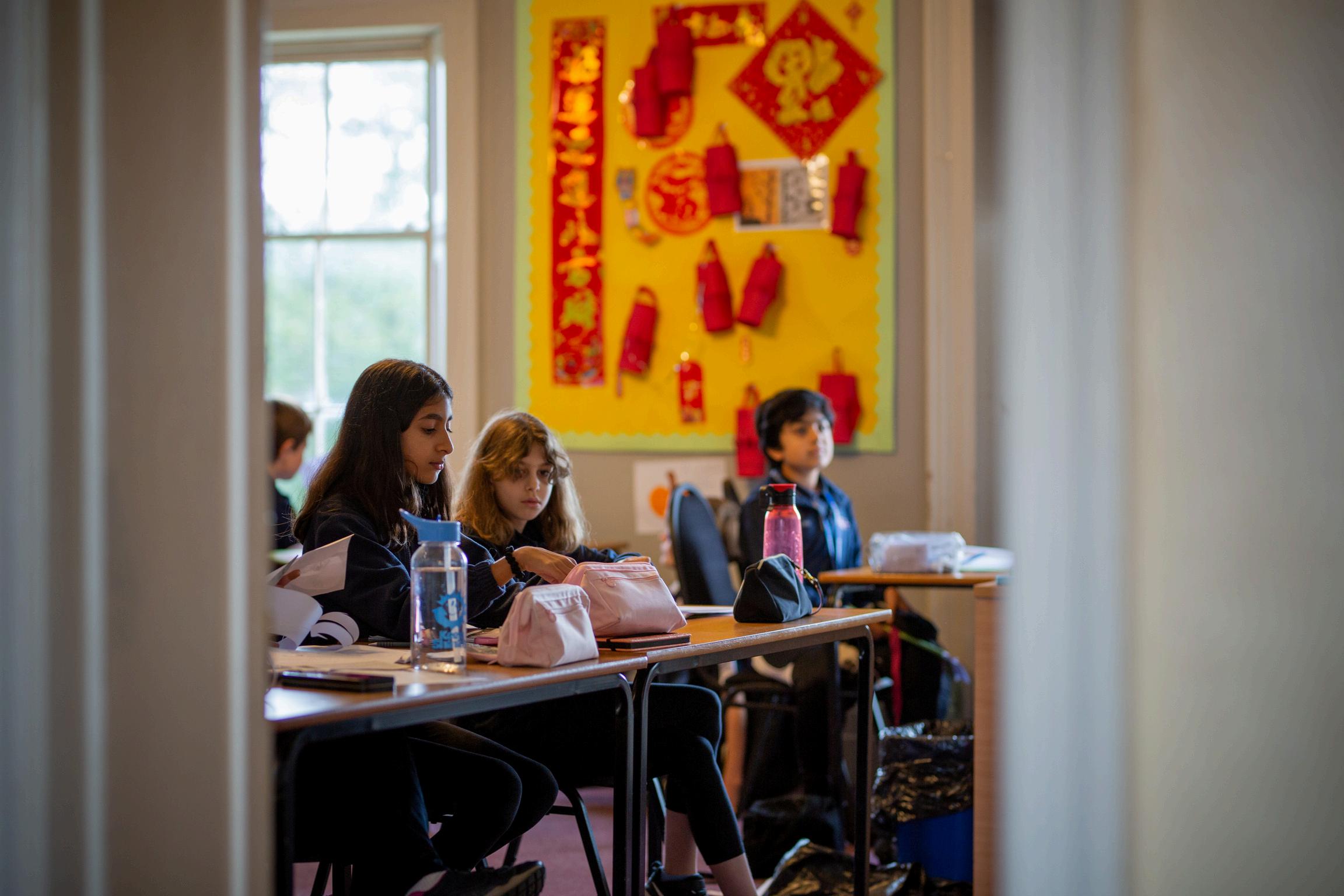

In the Autumn term, Year 6 students begin building a solid foundation in Mandarin Chinese, laying the groundwork for future GCSE study. They will develop speaking, listening, reading, and writing skills in a balanced and integrated way, while learning basic pronunciation rules and the fundamental strokes used to write Chinese characters. Students will begin working seriously with the textbook Jinbu 1, starting with Chapter 1: "嗨 Hi," where they will learn to count numbers, talk about age, and introduce themselves and others.
The curriculum also includes cultural exploration, as students discover key facts about China and its traditions. They will enjoy learning the legend of the Mid-Autumn Festival and create beautiful lanterns as part of this celebration. In addition, students will be introduced to popular Chinese children's songs, making language learning both educational and enjoyable.


How it will be assessed
Termly online assessments are completed by the pupils to demonstrate their depth of understanding of the mathematical topics that they have been studying. In addition, informal oral assessment takes place in lessons throughout the term to consolidate and assess depth of understanding.
Autumn 1 Investigations With Numbers Calculations
Angles & Triangles
Spring 1
Summer 1
Congruent & Similar Shapes
Comparing Fractions, Decimals, & Percentages
Finding Fractions of an Amount
Autumn 2
Number Puzzles Fractions
Ratio & Proportions
Spring 2
Word Problems
Fractions of quantities
Distance/Speed / Time Line Graphs
2D Shapes
Interior/ exterior angles
Summer 2
Percentages Calculations Negative Numbers Transformations: Translation Reflection Rotation
Formulae
Pie Charts & Tables
Perimeter & Area 3D Shapes Averages

Year 6 Curriculum Overview
The Year 6 Science Curriculum will cover Light, Particles, Living things and their habitats, Evolution and inheritance, Human Circulation and Health, and a mini-project consolidating chemistry skills
In this capacity the pupils will be taught the following skills:
To plan different types of experiments.
Identify equipment required for experiment
Take measurements, using scientific equipment; e g measuring cylinder and scales
Record data and results in tables and bar and line graphs, using a ruler and a pencil
Make predictions, using test results
Present findings, through graphs, tables evaluations and conclusions
How it will be assessed:
Pupils will be assessed on ½ termly tests to determine understanding and misconceptions
Then in the Summer Term the pupils will be assessed on the years ’ work to evaluate knowledge and understanding
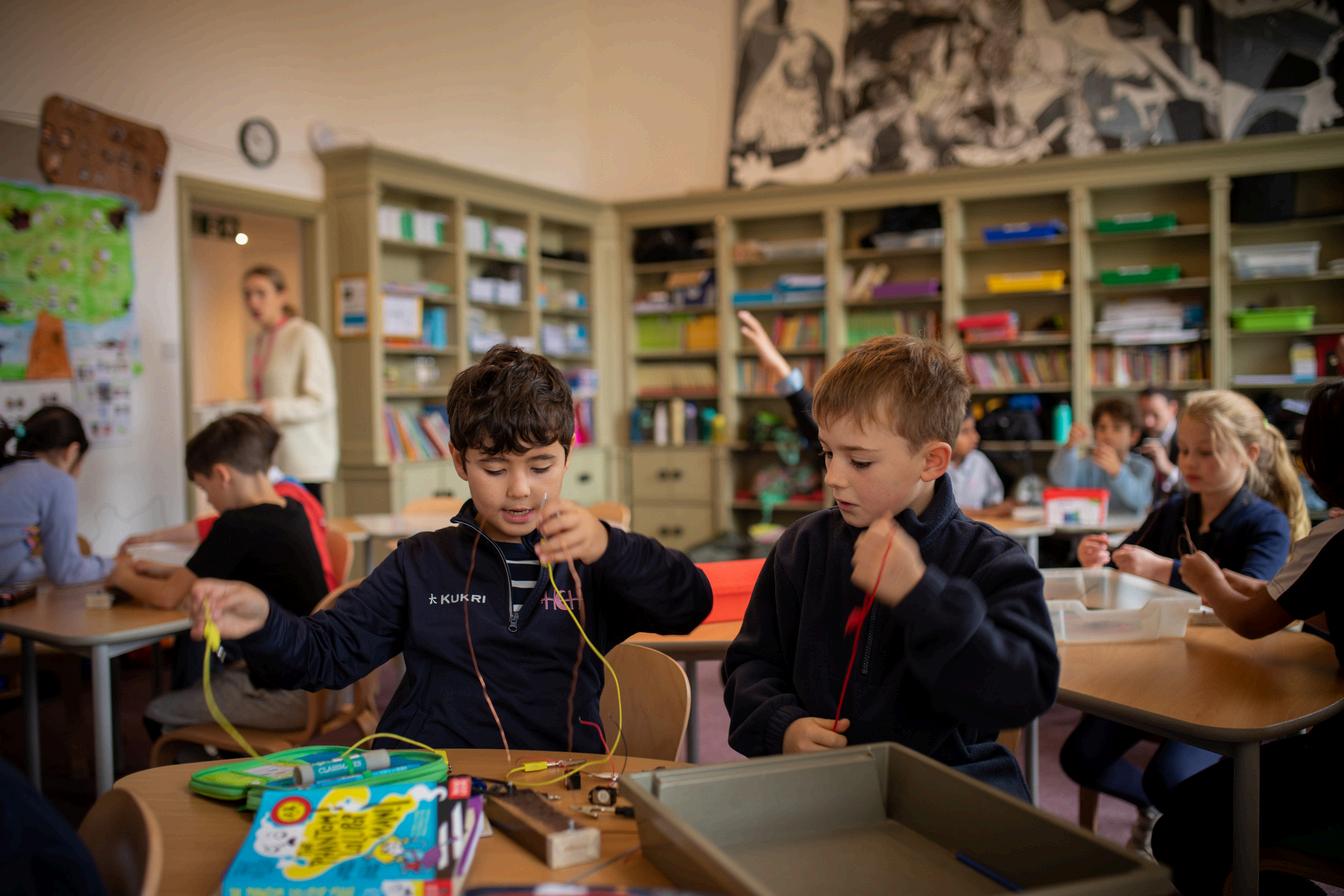

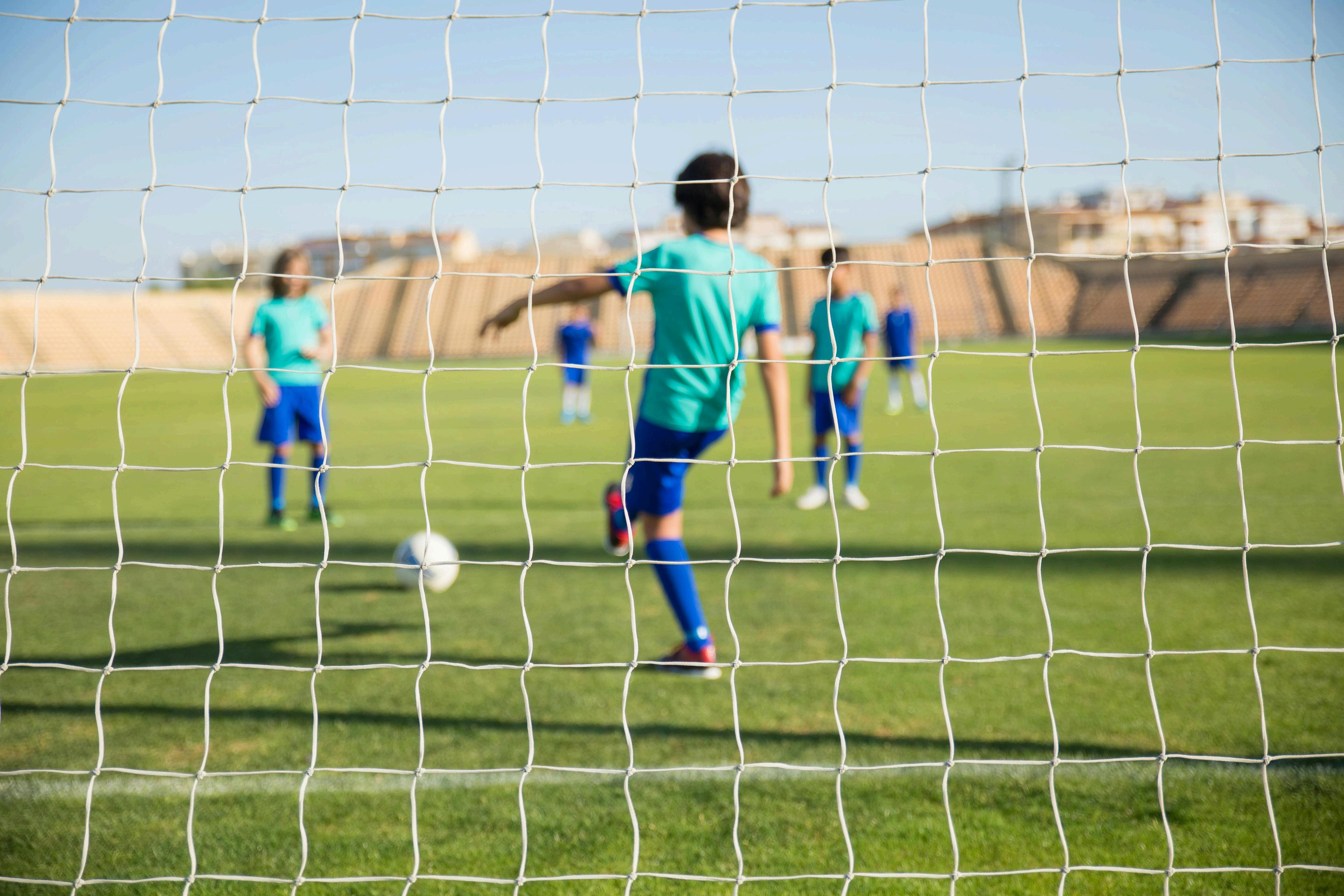

Organised physical activity is crucial for child development, contributing significantly to physical strength, growth, cognitive function, motivation, and social skills In Year 6, students will engage in two invasion games: football and netball
In football, pupils will further develop their comprehension of the fundamental skills necessary for participation in the sport This will encompass various methods for passing the ball, diverse techniques for shooting at the goal, and effective strategies for dribbling the ball throughout the playing area Additionally, students will focus on improving their agility in gameplay Through individual practice, partner exercises, and group activities, the children will enhance their knowledge of the sport via small-sided conditioned games
In netball, students will broaden their understanding of catching, throwing, and movement to facilitate participation in games Instruction will cover the basic positions, shooting techniques, and the different types of passes that can be employed in competitive situations
Term
Autumn
Spring 1
Spring 2
Summer 1
Summer 2
What are we studying?
Football: passing, shooting, dribbling, conditioned games
Netball: passing, shooting, attack vs defence, positions and conditioned games
Games: balance, coordination, agility, stuck in the mud, octopus tag, capture the flag
Gymnastics: balances, body shapes, travel, jumps and rolls
Hockey: passing, shooting, dribbling, conditioned games
Benchball: throwing, catching, positions and attack vs defence
Gymnastics: balances, body shapes, travel, jumps and rolls
Hockey: passing, shooting, dribbling, conditioned games
Dodgeball: passing, dodging, tactics and attack vs defence
Cricket: throwing, catching, batting, bowling and fielding
Athletics: shuttle relay, 60m sprint, 200m sprint, hurdles, long jump, javelin throw and shot-put throw
Cricket: throwing, catching, batting, bowling and fielding
Athletics: shuttle relay, 60m sprint, 200m sprint, hurdles, long jump, javelin throw and shot-put throw
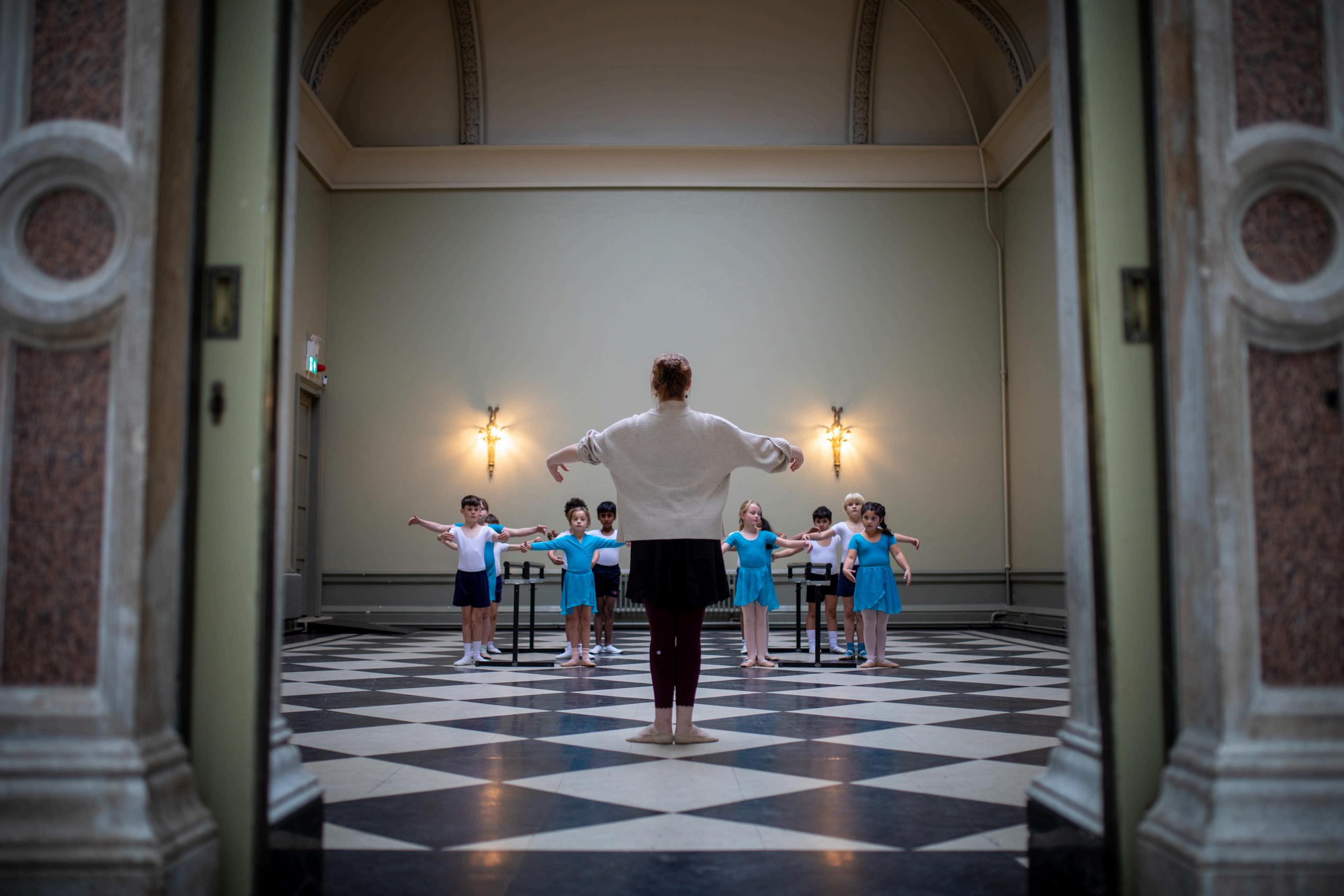

At Hampton Court House, we believe that the performing arts are integral to our school community. Therefore, our curriculum is built around students actively participating in various performances throughout the year. We are committed to offering inclusive opportunities that allow every student to showcase their talents
In our lessons, to prepare for these performances students will focus on developing spatial awareness, musicality, vocal, physical, and character skills to enhance their performance abilities. They will learn stage craft and understand how to engage an audience.
Additionally, we place a strong emphasis on collaborative and creative skills, which are essential for every child's growth. Our classes incorporate engaging games and activities designed to foster teamwork, improve peer interaction, and develop the ability to follow directions. Students are encouraged to contribute creative suggestions through music, movement, and dialogue, ensuring a well-rounded arts education at Hampton Court House. We begin the year by preparing for our Christmas show. Dance will move from ballet to a wider range of styles, and we believe this show will provide them with a great opportunity to develop their skills.
In Year 6, students have the exciting opportunity to work on a musical, combining the skills learned in their Dance, Music, and Drama lessons. They will build on the skills and confidence they gained in last year's production of Beauty and the Beast. Both Year 6 classes will work together with the Year 5 students to enhance the community feel of the project.
Throughout the year, there will also be numerous recitals and concerts, providing students with platforms to display their musical abilities and talents.
